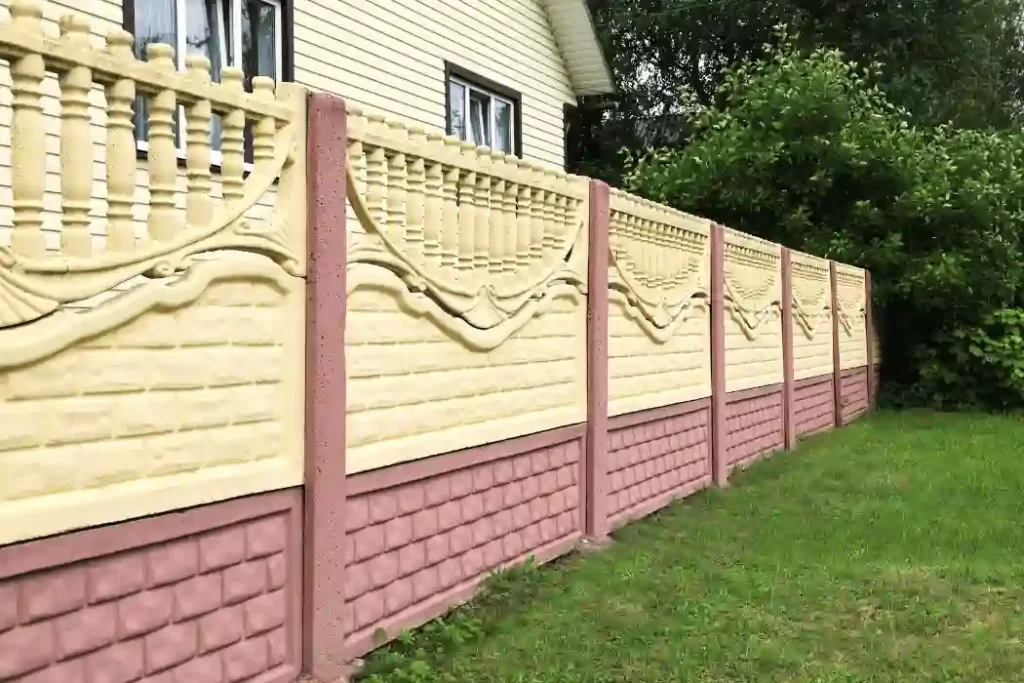When it comes to versatile and visually appealing building materials, decorative concrete blocks stand out as a unique and artistic option. These blocks, also known as architectural or screen blocks, offer a combination of functionality, durability, and aesthetic appeal. With their intricate designs and textured surfaces, decorative concrete blocks have the power to transform ordinary spaces into stunning works of art. In this article, we will explore the beauty and versatility of decorative concrete blocks, their applications in architecture and landscaping, and the advantages they offer for both residential and commercial projects.
Decorative concrete blocks have been used for decades in construction projects, offering a unique blend of functionality and artistic expression. These blocks are made from a mixture of cement, aggregates, and pigments, molded into various shapes and designs. With their versatility and captivating patterns, decorative concrete blocks have gained popularity in both residential and commercial settings, adding a touch of architectural elegance and visual interest to buildings and outdoor spaces. Revamp your home renovation with the creative use of decorative concrete blocks, adding a unique and modern architectural flair to your indoor and outdoor spaces.
The Beauty and Versatility of Decorative Concrete Blocks
Decorative concrete blocks are available in a wide range of patterns, shapes, and sizes, allowing for endless design possibilities. They can be used to create intricate facades, privacy screens, fences, or as decorative elements in both interior and exterior applications. The beauty of decorative concrete blocks lies in their ability to capture and diffuse natural light, casting captivating shadows and creating visually stunning effects.

Applications in Architecture
Decorative concrete blocks have become a staple in architectural design, offering architects and designers the freedom to explore creative possibilities. Here are a few popular applications:
Facades: Decorative concrete blocks can be used to create eye-catching facades that enhance the visual appeal of buildings. The blocks can be arranged in various patterns and configurations, adding depth, texture, and character to the exterior.
Partition Walls: These blocks can be used to create partition walls that provide both privacy and a sense of openness. The intricate patterns allow light to filter through while still maintaining separation between spaces.
Interior Elements: Decorative concrete blocks can be used as decorative features within interior spaces, such as accent walls, room dividers, or decorative screens. They add a touch of uniqueness and texture to the overall design.
Enhancing Outdoor Spaces with Decorative Concrete Blocks
Decorative concrete blocks are equally captivating in outdoor settings. Here are some ways they can enhance outdoor spaces:
Garden Walls: Use decorative concrete blocks to create stunning garden walls that define spaces and provide privacy. The blocks can also be incorporated into retaining walls, adding both function and visual appeal.
Patio Screens: Install decorative concrete block screens to create privacy and separation on patios or outdoor living areas. These screens can be designed with patterns that allow airflow while still maintaining a sense of enclosure.
Landscape Features: Use decorative concrete blocks as landscape features, such as planters, benches, or water features. The blocks add a unique and artistic touch to outdoor environments, making them focal points of interest.
Advantages of Decorative Concrete Blocks
Decorative concrete blocks offer several advantages for both residential and commercial projects:
Durability: Made from high-quality materials, decorative concrete blocks are durable and able to withstand various weather conditions. They are resistant to rot, pests, and fire, making them a long-lasting choice.
Low Maintenance: Once installed, decorative concrete blocks require minimal maintenance. Occasional cleaning with water and mild detergent is usually sufficient to keep them looking their best.
Versatility: Decorative concrete blocks are highly versatile, allowing for endless design possibilities. They can be customized to suit specific architectural styles or project requirements.
Energy Efficiency: Decorative concrete blocks provide excellent thermal insulation, reducing energy consumption and creating a comfortable indoor environment. Their dense composition helps regulate temperature and minimize heat transfer.
Installation and Maintenance
Installation of decorative concrete blocks should be carried out by professionals familiar with the specific requirements of the project. Proper installation ensures structural integrity and long-term durability. Regular maintenance involves cleaning the blocks using a soft brush or pressure washer and inspecting for any signs of damage or wear. Prompt repairs should be carried out to maintain the appearance and performance of the blocks.
Conclusion
Decorative concrete blocks offer a unique blend of artistic expression, durability, and versatility. Whether used in architectural facades, landscape features, or interior design elements, these blocks have the power to transform spaces into captivating works of art. With their array of patterns and designs, decorative concrete blocks provide an opportunity to create truly distinctive and visually appealing structures. Embrace the beauty and functionality of decorative concrete blocks as you explore the endless possibilities they offer for your residential or commercial projects.

